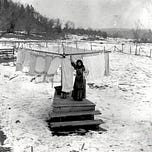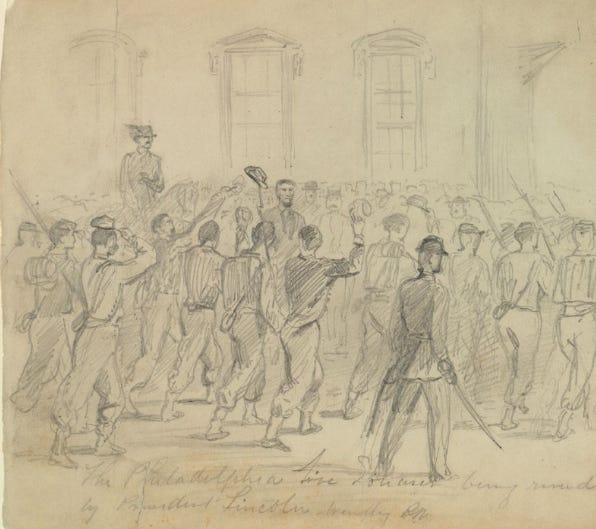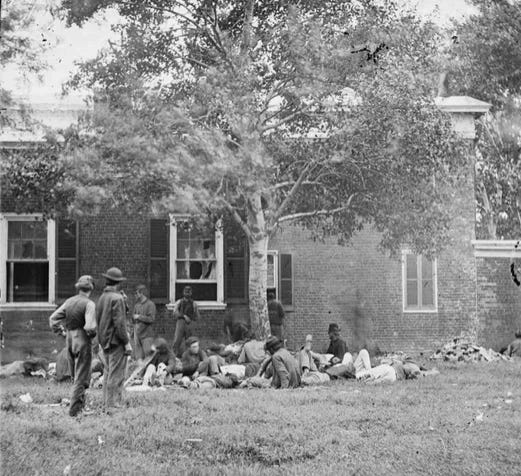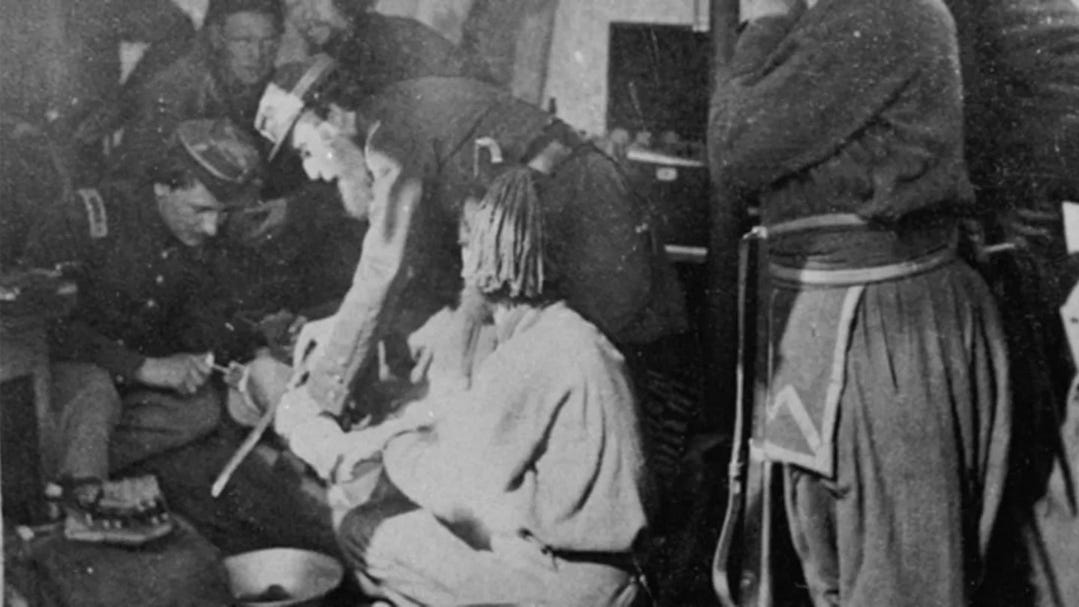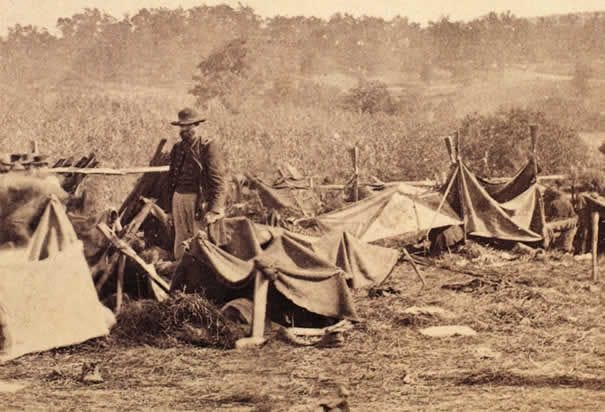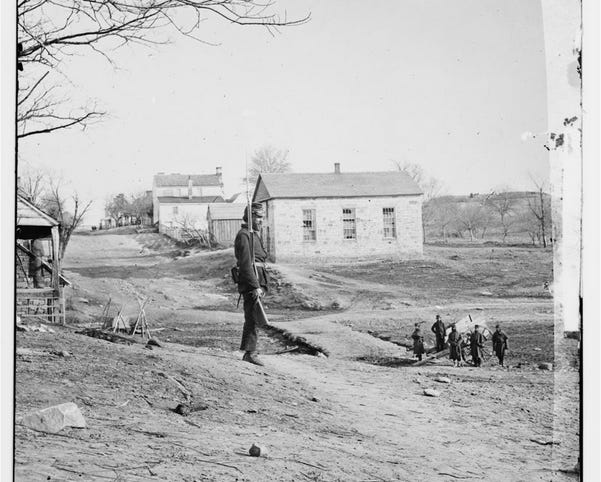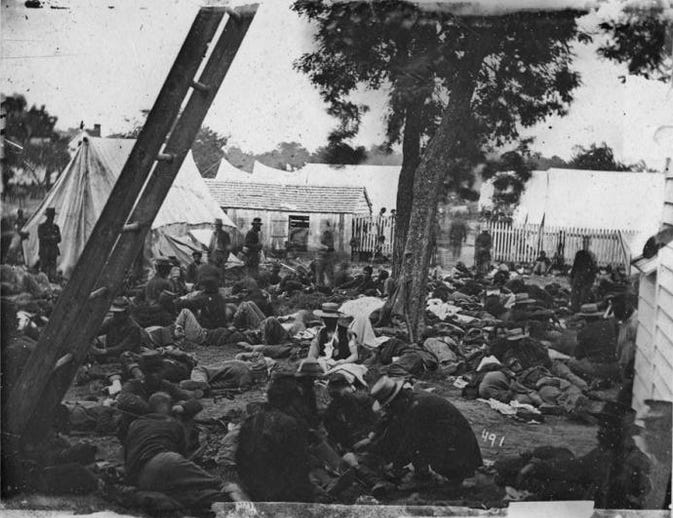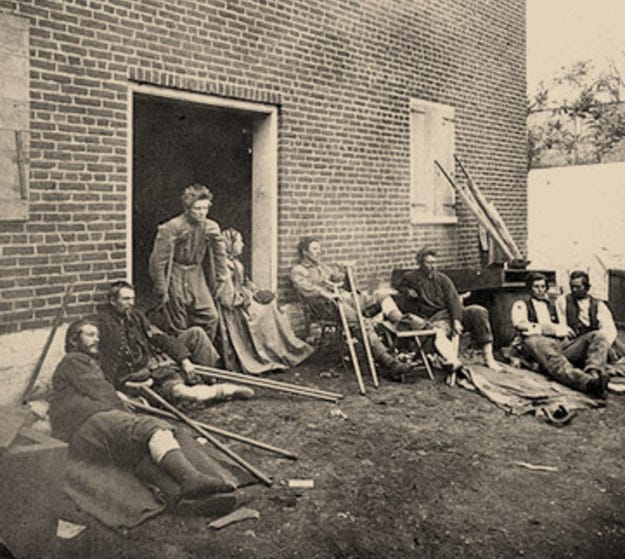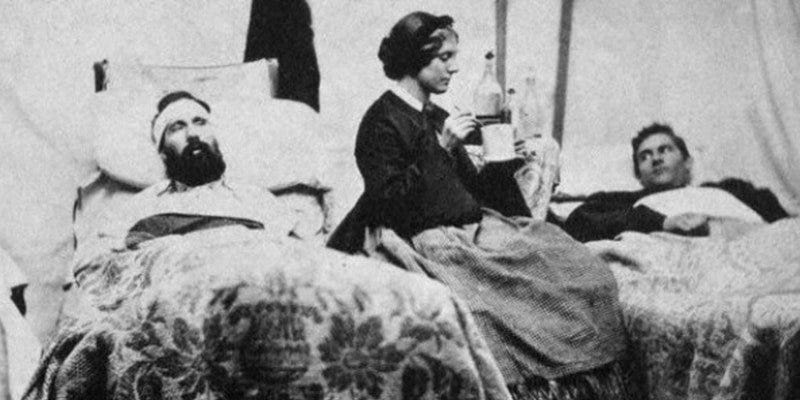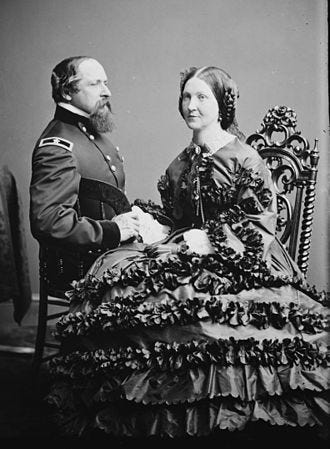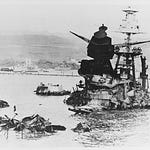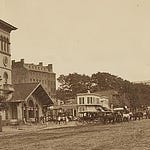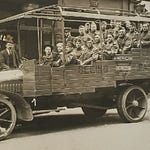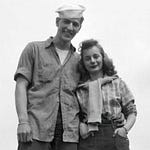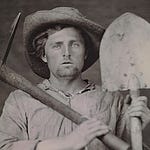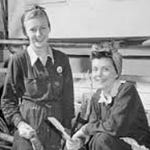The worried wife.
The Civil War’s first major battle killed or wounded almost five thousand men.
Among them was Captain James B. Ricketts, a Union artillery commander.
After receiving wounds, he was taken to a house on the edge of the battlefield which the Confederates had converted into a field hospital.
Four days later, Ricketts’s wife, Fanny, learned her husband had been injured.
She left her home in Washington and crossed Confederate lines to search for him.
And she found him in that house.
She described the scene in her journal:
“Two men dead and covered with blood are carried down the stairs as I waited to let them pass.
“On a table in the open hall a man was undergoing amputation of the leg.
“At the foot of the stairs two bloody legs lay and through all I went to my husband…
“In the opposite room are ten dying or wounded men.
“Next to us are three, one with a gangrenous thigh where it is amputated. The smell is horrible.
“In another room are five Carolinians, one dying, son of Henry S. Middleton. His father is with him…
“Downstairs there are some forty men in various stages of death or possible recovery.
“Blood runs on the floor, the smell is dreadful, but no language can describe it…
“[My husband] Genl. Ricketts alone was on a stretcher wrapped in one of his own red artillery blankets, his Army hat bandaging his cut forehead and generally unconscious from his wound not having spoken that day...
“but as I knelt by his side, he drew me down saying 'My wife, I knew you would come.'"
He was one of the lucky ones.
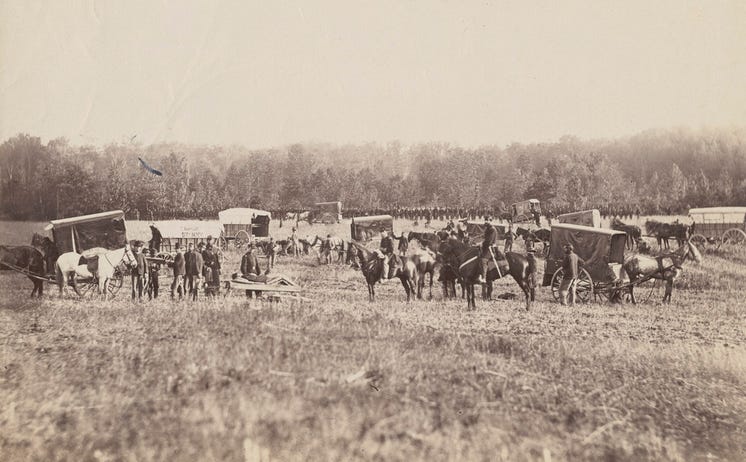
There was no organized ambulance system to take wounded men off the battlefield early in the war.
Men would lay where they fell, sometimes for days.
Homes, churches and barns were turned into field hospitals.
They treated both Union and Confederate soldiers alike.
They were crowded and unsanitary.
Wounded limbs were usually amputated.
The doctors worked quickly, from one man to the next, using bone saws and chloroform as sedation.
As for Ricketts, when he got stronger, he was taken to Libby Prison in Richmond and Fannie was allowed to accompany him.
There, she cared for him and other Union prisoners until Ricketts was freed in a prisoner exchange.
He returned to the war, fighting in 26 more battles and receiving other wounds.
They would be blamed for his death two decades later, a fate which befell many old war veterans.
*******************************
I’ll see you tomorrow.
— Brenda
Banner image: Union soldiers cross a stream in South Carolina, February 1865.


